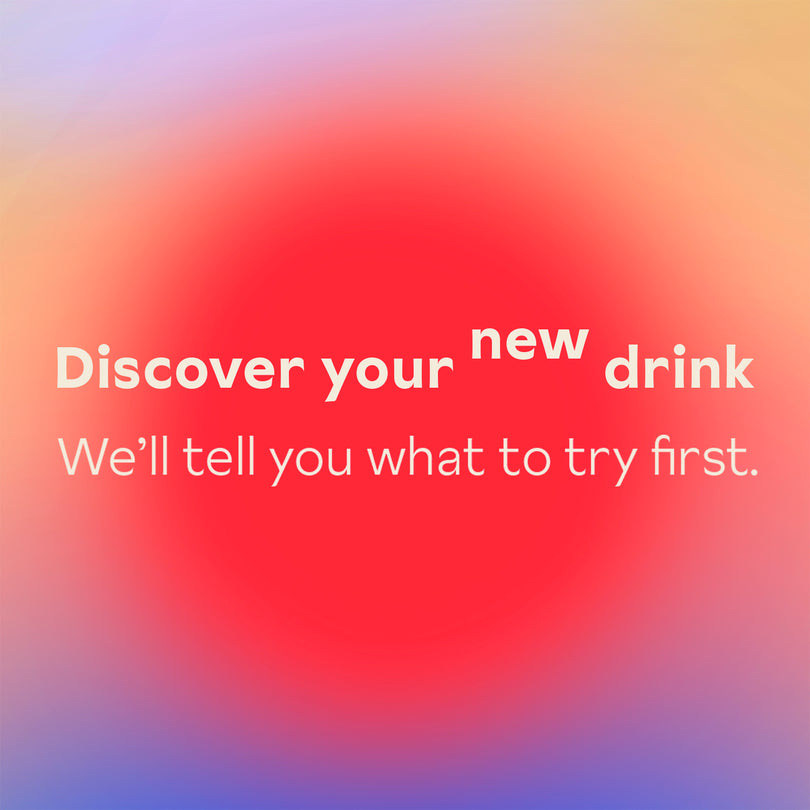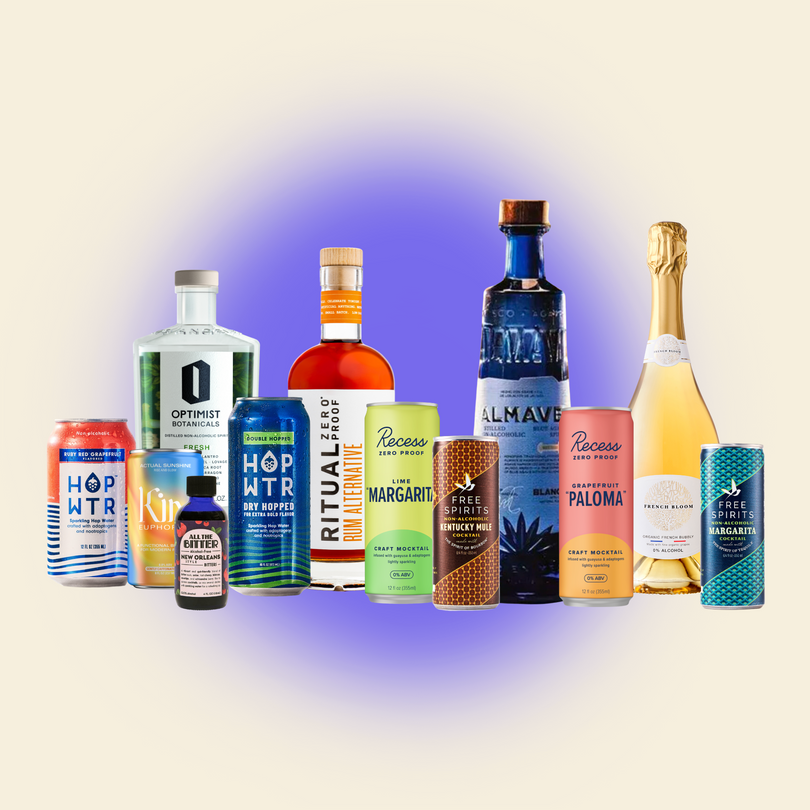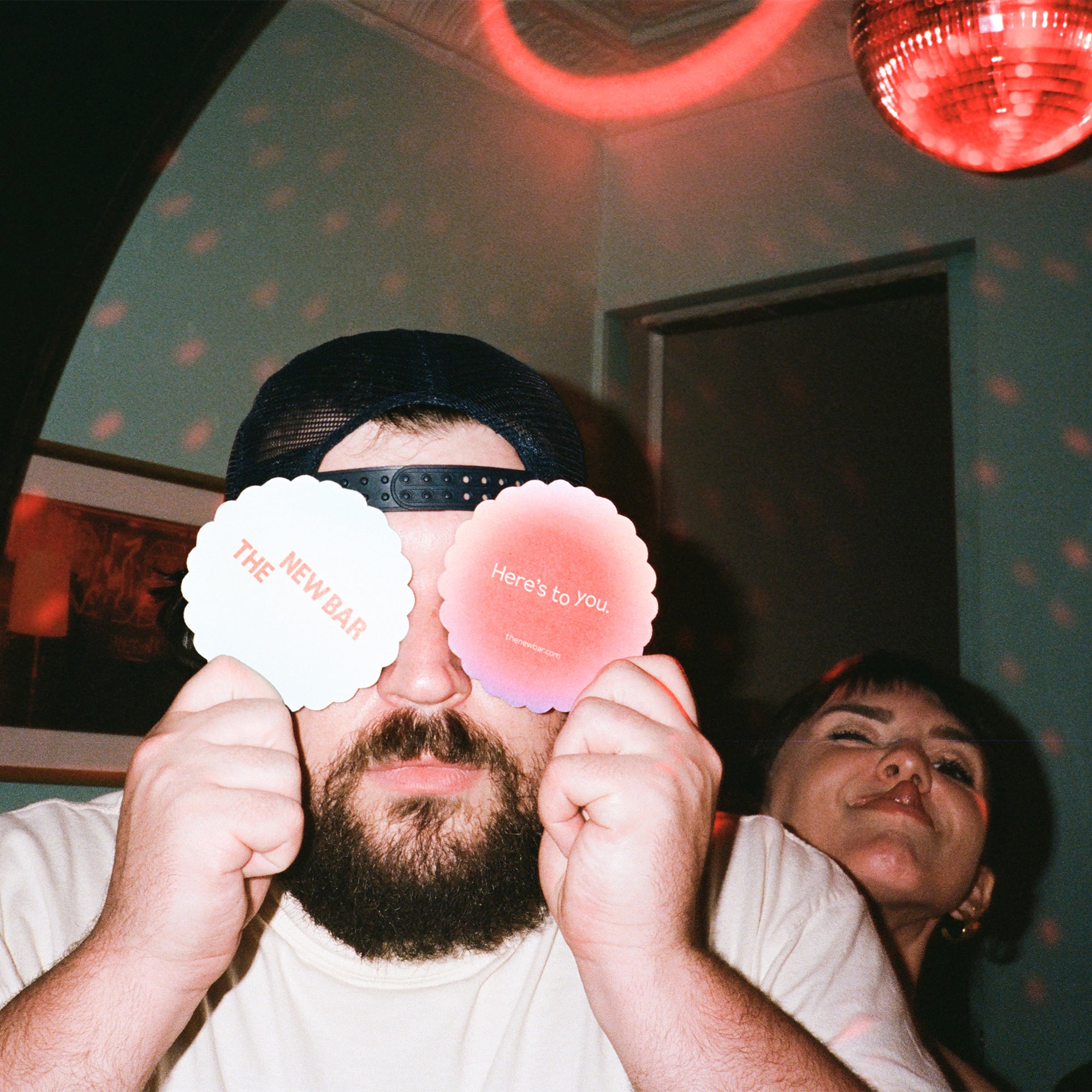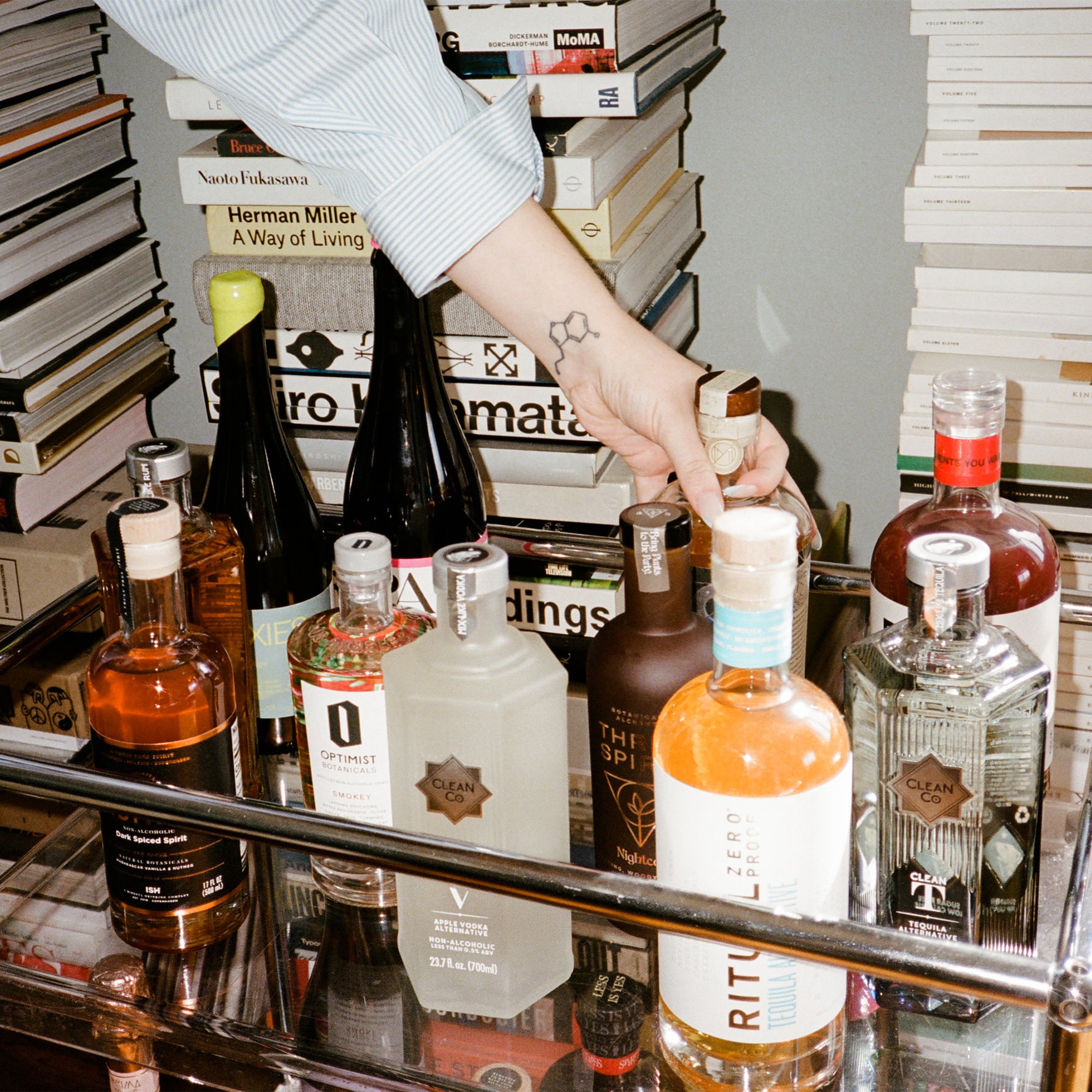We probably don't need to explain to you why people drink. But, with so many happy hours and networking events centered around drinking, it's easy to become reliant on alcohol for social interaction and relaxation. However, drinking alcohol isn’t exactly healthy for you, and can have numerous adverse effects on your body, including weakening your immune system and affecting your mental health.
The advantages of sobriety or becoming sober curious are clear, but that doesn't make taking the first step easy. So, what happens when you start down that path? Read on for more information about going sober and the potential benefits of this lifestyle change.
What does "sober" really mean?
We used to drink without a second thought, but at some point, we started to question why we had been consuming so much over the years. We decided to reduce our drinking, and while we don't love labels, we started what you'd call a "sober curious" lifestyle.
While sober curiosity has become more prevalent as more people seek out new and different ways to live healthier lives, the word "sober" still has a negative connotation. Even the definition of sober sounds mostly negative with words like "serious," "solemn," and "somber" featured prominently.
Given the associations we've made with the word as a society, when people hear the word sober, it's no surprise it often feels like a significant "buzzkill." At TNB, we don’t get hung up on the labels around how, what, or why you choose to drink or not drink. We also fundamentally disagree with the notion that making those decisions has to be inherently sad, heavy, or boring.
But, for clarity, by general definition, a sober person is someone who does not drink at all.
How does your body change when you quit drinking?
When you decide to ditch alcohol or reduce your drinking, you limit your exposure to the physical and mental stresses of drinking alcohol. You're less likely to get into accidents and potentially injure yourself, and you will also limit the health issues associated with long-term drinking.
By reducing your alcohol consumption, you'll have a healthier cardiovascular system, which will have a wide range of benefits, like increasing longevity and improving your stamina . You'll also have a decreased risk of cancer and an improved immune system -- say hello to less colds! Your liver will experience rest from working so hard to digest the alcohol, and will repair itself. Reducing your drinking can add years to your life and improve overall well-being.
If you have previously had a heavy dependence on alcohol, you may experience symptoms of alcohol withdrawal that can vary in severity. These will eventually subside with time, typically over a week or so, but contact a physician if you have any uncertainty about your condition.
Here are some other benefits you might notice when you reduce your alcohol consumption....
Mind
As a depressant, alcohol slows brain function and neural activity, and can cause memory loss. As a result, when you consume less alcohol, your stress levels, anxiety, and depression will decrease, and your memory should also improve. Your attention and focus will become sharper and your energy and productivity levels will increase. You may experience newfound confidence, openness, and self-esteem that come with both a healthier body and mind.
Liver
After eliminating alcohol, your liver will return to normal function within 30 days if you don't have any pre-existing liver-related diseases. The liver detoxifies blood and stores glycogen for energy. It's a vital organ that filters out harmful toxins and manufactures proteins, enzymes, and hormones that the body uses to ward off infection. Over time, as your liver function improves from having to process less alcohol, you may notice improvements to the health of your skin, and you will likely experience less of the abdominal pain and nausea that comes with an overworked liver.
Body Weight
As you heal your gut and digestive tract, your food absorption and appetite may fluctuate initially. Don't let this scare you! This is a good sign that your body is healing itself and eventually stabilizing to healthy levels. You're likely to lose weight in the long term, as you're ditching the consumed average of 14 units per week (6 pints of beer or ten small glasses of wine), which can add an extra 3,000 calories to your diet!
Sleep
Insomnia may occur right after you quit drinking because your body is still adjusting to a regular sleep schedule. Your body may have relied on alcohol to pass out, wake up, or help you fall asleep, so while you may have been able to fall asleep more quickly, the quality of your sleep likely suffered as a result. By quitting or even cutting back on drinking, you’ll notice yourself feeling more rested and refreshed from sleep after a few weeks.
Immune System
Alcohol can suppress your immune system and make your body susceptible to infection and disease. However, with less alcohol, your immune system can heal and replenish itself. You weaken your immune system for up to 24 hours every time you drink, so limiting this frequency can stabilize your defense against illness in the long term. Upon eliminating alcohol from your routine, you’ll find yourself becoming sick less often and over time, you’ll decrease your risk of heart and liver disease.
Libido
When beginning to get sober, you may experience a decreased sex drive. Over time, however, you’ll likely notice an increase in libido and find yourself enjoying sex more, as your performance will no longer be inhibited by alcohol, and will be improved by an increase in energy and vitality.
Skin
Alcohol dilates the pores, which can decrease the overall health and look of your skin by causing blackheads, whiteheads, and cystic acne. A decrease in alcohol consumption will improve your skin by increasing hydration and circulation. Alcohol dehydrates the skin and causes pores and wrinkles to be more visible, making you look older than your age. When you stop drinking, your skin can clear up and start glowing within a month.
Should I be sober or sober curious?
Exploring sobriety or being sober curious is a highly personal decision and different for everyone. While you may not have an active addiction or dependency, you may want to get sober for health or financial reasons, or simply because you don't feel like yourself when you drink.
Whatever the reason, sobriety and sober curiosity is a decision made by you and for you.
Reducing alcohol consumption isn't a quick fix to life's woes, but it can be a step towards a healthier, more fulfilling life. Don't forget, a life with a little less alcohol in it can still be just as fun, and this time around, you'll be able to remember what you did last night.






